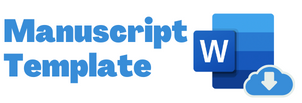Menepis Hoax Media Sosial di Tahun Politik: Pendekatan Systematic Literature Review
DOI:
https://doi.org/10.55108/jap.v6i1.198Kata Kunci:
combating hoax, social media, post-truth era, electionsAbstrak
This research aims to delineate strategies to counteract hoaxes during election years, employing a systematic literature review methodology. The review considers articles from journals accredited within the Sinta 1-3 range, focusing on the theme of combating election-related hoaxes, and includes publications from 2019 to September 2022. The study reveals nine pivotal strategies to tackle social media hoaxes during election years, namely: (1) Promoting media literacy and social media ethics. (2) Targeting all societal groups. (3) Implementing preventive actions ubiquitously—at home, in places of worship, workplaces, social gatherings, educational institutions. (4) Engaging in activities fostering critical thinking, such as seminars, discussions, socialization events, community service, collaboration with anti-hoax communities, and other pertinent initiatives. (5) Developing and enhancing courses or materials in schools, universities, and other educational institutions related to media literacy and social media ethics. (6) Proposing development initiatives involving various stakeholders: First, educational and related institutions can design activities encompassing media literacy and social media ethics. Second, parents should be educated to instill media literacy in their children from an early age. (7) Instituting consistent and long-term policies. (8) Implementing regulations and criminal laws that prohibit hoaxes, with penalties for those who violate these rules. (9) Executing vigilant supervision and law enforcement to handle the spread of hoax news and the associated legal penalties.
Unduhan
Referensi
Annur, C. M. (2022). Ada 204,7 Juta Pengguna Internet di Indonesia Awal 2022. Retrieved September 20, 2022, from Katadata website: https://databoks.katadata.co.id/datapublish/2022/03/23/ada-2047-juta-pengguna-internet-di-indonesia-awal-2022
Bakri, S., Zulhazmi, A. Z., & Laksono, K. (2019). Menanggulangi Hoaks dan Ujaran Kebencian Bermuatan Isu Suku, Agama, Ras, dan Antargolongan di Tahun Politik. Al-Balagh: Jurnal Dakwah Dan Komunikasi, 4(2), 199–234. https://doi.org/10.22515/balagh.v4i2.1833
Bandur, A. (2019). Penelitian Kualitatif Studi Multi Disiplin Keilmuan dengan NVivo 12 Plus. Jakarta: Mitra Wacana Media.
Devega, E. (2017). Kominfo: Masyarakat Perlu Literasi Media Sosial. Retrieved September 22, 2022, from Kementerian Komunikasi dan Informatika Republik Indonesia website: https://www.kominfo.go.id/content/detail/10858/kominfo-masyarakat-perlu-literasi-media-sosial/0/sorotan_media
Evanalia, S. (2022). Peran Jurnalisme Media Sosial dalam Mewujudkan Demokrasi Indonesia di Era Post Truth. Jurnal Adhyasta Pemilu, 5(1), 32–43. https://doi.org/10.55108/jap.v5i1.86
Febriansyah, F., & Muksin, N. N. (2020). Fenomena Media Sosial: Antara Hoaks, Destruksi Demokrasi, dan Ancaman Disintegrasi Bangsa. Sebatik, 24(2), 193–200. https://doi.org/10.46984/sebatik.v24i2.1091
Firmansyah, R. (2017). Web Klarifikasi Berita untuk Meminimalisir Penyebaran Berita Hoax. Jurnal Informatika, 4(2), 230–235. https://doi.org/10.31294/ji.v4i2.2138
Florina, I. D. (2019). Literasi Media Baru di Kalangan Dosen Menaggapi Isu Politik dalam Pusaran Hoax dan Hate speech. ETTISAL : Journal of Communication, 4(1), 55–66. https://doi.org/10.21111/ettisal.v212.2821
Ganggi, R. I. P. (2018). Materi Pokok dalam Literasi Media Sosial sebagai salah Satu Upaya Mewujudkan Masyarakat yang Kritis dalam Bermedia Sosial. Anuva, 2(4), 337–345. https://doi.org/10.14710/anuva.2.4.337-345
Higgins, K. (2016). Post-Truth: A Guide for the Perplexed. Retrieved March 3, 2022, from Nature website: https://www.nature.com/articles/540009a
Hui, J. Y. (2020). Social Media and the 2019 Indonesian Elections: Hoax Takes the Centre Stage. Southeast Asian Affairs, SEAA20(1), 155–174. https://doi.org/10.1355/aa20-1i
Jayani, D. H. (2019). Hoaks Politik Masih Marak Pasca-Pemilu 2019. Retrieved September 19, 2022, from.
Juliswara, V. (2017). Mengembangkan Model Literasi Media yang Berkebhinnekaan dalam Menganalisis Informasi Berita Palsu (Hoax) di Media Sosial. Jurnal Pemikiran Sosiologi, 4(2), 142. https://doi.org/10.22146/jps.v4i2.28586
Khalyubi, W., & Perdana, A. (2021). Electoral Manipulation Informationally on Hoax Production in 2019 Presidential and Vice Presidential Election in Indonesia. Journal of Government and Political Issues, 1(2), 87–99. https://doi.org/10.53341/jgpi.v1i2.17
Lestari, Y. S. (2018). Politik Identitas di Indonesia: Antara Nasionalisme dan Agama. Journal of Politics and Policy, 1(1), 19–30. https://doi.org/10.21776/ub.jppol.2018.001.01.2
Liberati, A., Altman, D. G., Tetzlaff, J., Mulrow, C., Gøtzsche, P. C., Ioannidis, J. P. A., … Moher, D. (2009). The PRISMA Statement for Reporting Systematic Reviews and Meta-Analyses of Studies That Evaluate Health Care Interventions: Explanation and Elaboration. PLoS Medicine, 6(7), 1–28. https://doi.org/10.1371/journal.pmed.1000100
Manalu, R., Pradekso, T., & Setyabudi, D. (2018). Understanding the Tendency of Media Users to Consume Fake News. Jurnal Ilmu Komunikasi, 15(1), 1–16. https://doi.org/10.24002/jik.v15i1.1322
Miles, M. B., Huberman, A. M., & Saldaña, J. (2014). Qualitative Data Analysis (Edition 3). Los Angles: Arizona State University.
Nadzir, I., Seftiani, S., &, & Permana, Y. S. (2019). Hoax and Misinformation in Indonesia: Insights from a Nationwide Survey. Perspective, 5(2), 1–12. Retrieved from https://www.researchgate.net/publication/339375879%0AHoax
Park, K., & Rim, H. (2020). “Click First!”: The Effects of Instant Activism Via a Hoax on Social Media. Social Media and Society, 6(2), 1–13. https://doi.org/10.1177/2056305120904706
Pusparisa, Y. (2020). Puncak Penyebaran Hoaks Terjadi Menjelang Pilpres 2019. Retrieved March 3, 2022, from Kata Data website: https://databoks.katadata.co.id/datapublish/2020/01/07/jelang-pemilu-hoaks-makin-berseliweran
Rianto, P. (2019). Literasi Digital dan Etika Media Sosial di Era Post-Truth. Interaksi: Jurnal Ilmu Komunikasi, 8(2), 24–35. https://doi.org/10.14710/interaksi.8.2.24-35
Rizky, S. M., Jordan, J., & Ridwan, M. (2018). Political Education to Dispel The Misinterpreted Negative Campaign in General Election in Indonesia. Indonesian Law Journal, 11(2014), 1–18. Retrieved from https://ejournal.bphn.go.id/index.php/ILJ/article/view/36
Sabrina, A. R. (2019). Literasi Digital Sebagai Upaya Preventif Menanggulangi Hoax. Communicare : Journal of Communication Studies, 5(2), 31–46. https://doi.org/10.37535/101005220183
Tapsell, R. (2019). Indonesia’s Policing of Hoax News Increasingly Politicised. ISEAS Perspective, (75), 1–10. Retrieved from https://www.iseas.edu.sg/images/pdf/ISEAS_Perspective_2019_75.pdf
Tsaniyah, N., & Juliana, K. A. (2019). Literasi Digital Sebagai Upaya Menangkal Hoaks di Era Disrupsi. Al-Balagh (Jurnal Dakwah Dan Komunikasi), 4(1), 121–140. https://doi.org/10.22515/balagh.v4i1.1555
Utami, P. (2018). Hoax in Modern Politics: The Meaning of Hoax in Indonesian Politics and Democracy. Jurnal Ilmu Sosial Dan Ilmu Politik, 22(2), 85–97. https://doi.org/10.22146/jsp.34614
Wahono, H. T. T., & Effrisanti, Y. (2018). Literasi Digital di Era Millenial. Prosiding Seminar Nasional Hasil Penelitian Pendidikan Dan Pembelajaran STKIP PGRI Jombang, 4(1), 185–193. Retrieved from https://ejournal.stkipjb.ac.id/index.php/prosiding/article/view/548
Widodo, G., Purgito, & Suryani, R. (2020). Aspek Hukum Delik Penyebaran Berita Bohong (Hoax) Berdasarkan Undang-Undang Nomor 19 Tahun 2016 Tentang Perubahan atas Undang-Undang Nomor 11 Tahun 2008 Tentang Informasi dan Transaksi Elektronik. Pamulang Law Review, 3(1), 57–66. https://doi.org/10.32493/palrev.v3i1.6528
Wilson, C., Grizzle, A., Tuazon, R., Akyempong, K., & Cheung, C.-K. (2011). Media and Information Literacy Curriculum for Teachers. Paris: UNESCO.
Unduhan
Diterbitkan
Cara Mengutip
Terbitan
Bagian
Lisensi
Hak Cipta (c) 2023 Suliyansyah Suliyansyah

Artikel ini berlisensi Creative Commons Attribution 4.0 International License.


